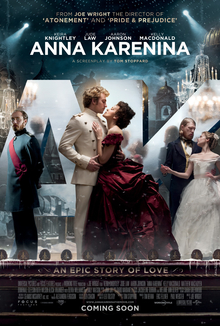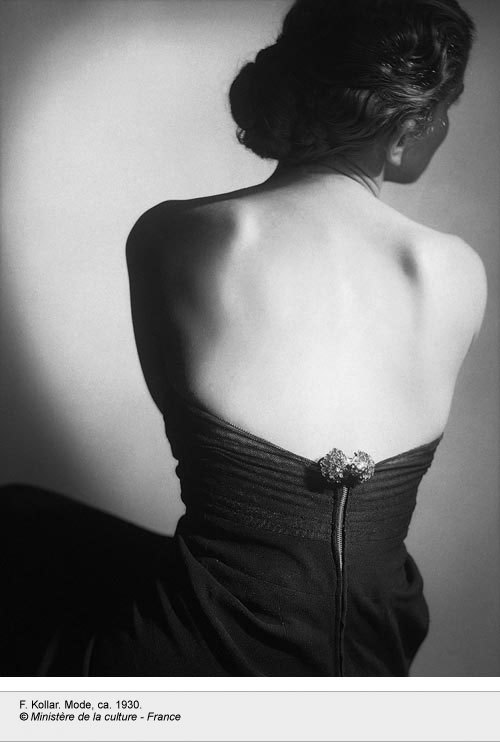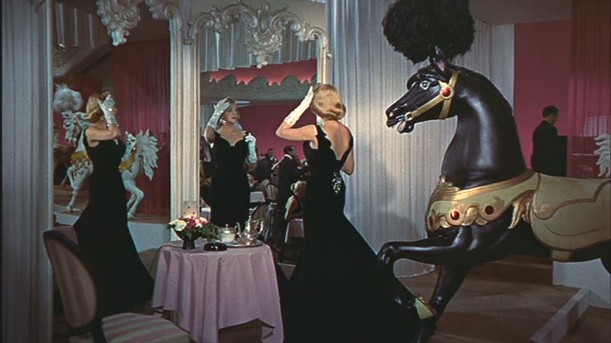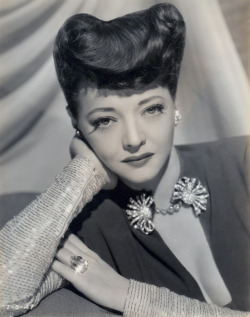At the same time I am eliminating certain kinds of entertainment, I'm also analyzing what stays, and why it's worthwhile. What I'm realizing is it's simultaneously unsurprising and completely unexpected what "works" for me entertainment-wise, ethically speaking. One stupendously trashy show has struck me particularly.
Among the unsurprising keepers - and unembarrassing ones - are Luke Cage, with some of the best women characters I've seen in a long time, a killer soundtrack, and a team of black writers filling out a fully realized world it's exciting to learn about and inhabit for a while. Jessica Jones and Agents of Shield too, yeah. Trek, of course, but I won't bore anyone with the details; that's another tag entirely. On my DVD shelf are the queasily balanced Caprica (strong female characters, sure, but a creepily sexualized teenager at the center, and an entire ensemble of absolutely bat-splat crazy people all-round) and Battlestar Galactica (I am not overjoyed with the gender issues and the fact it's an overwhelmingly white, eurocentric show, though it really began to explore these things at least, which so much television fears to).
Of course, few people embarrass themselves by liking Luke Cage, a well-received entry in a Marvel Universe which has been well loved as well as blockbuster successful.
Meanwhile, few people would ADMIT what I am about to, but I have to for the purposes of this post.
I watch The Royals. I watch it gleefully, in tandem with a friend of mine whom I shall not name unless they choose to out themselves, and reveling in its soap operatics, its tonguey-cheekiness (sometimes exposing actual nether cheeks - so naughty!), and ... well, I mean. Dame Joan Collins.
Here's the thing about The Royals. Lambasted in a hurry by everyone in need of protecting their cred against its excesses, laughed at for being unrealistic (that's the POINT, rather), and avoided by all except apparently enough millions of viewers to keep it afloat, the series is on its way into a third season and shows no sign of dying on the vine.
This show is Beyond the Valley of the Dolls, it's Grand Guignol. It's sumptuously daft, and not pretending remotely to be anything else. It is stocked entirely with ham in every casting, and home to more pouty lower lips than I've seen anywhere else on TV - and that is saying something. It's actually got a bit of heart here and there, and the delirious sets and costumes and performances are just right for the madness of the politics and deception around which the whole thing swirls prettily, like a gaudy fan.
Politics and deception have always made good tube. Dynasty hasn't even got a patch on Her Joanness in this gig. Most addicting-cinematic-TV of the 21st century has traded in exactly this sort of GOTCHA plotting. Joss Whedon has made a career out of it, and everybody likes him.
Not so The Royals.
Which is a shame. Not only is the show a lot more fun than the darker takes on murder and mayhem currently on offer (it doesn't hurt your heart to watch it), it's just as valid in honest ways.
And some other ways too, where there are dark shows doing the same thing and failing in important ways.
To wit: the women.
The Royals is outright run by women. The Prime Minister, the Queen, the Princess, the scheming would-be consorts of the on-again/off-again male heir, the million thieves and killers and hangers-on and lovers and exes ... the only characters here who actually move any pieces on the board are the women.
Oh, sure, current-King Cyrus is a gas to watch, for his chin alone. He's up there with Bruce Payne for greasily gluttonous scenery sneer-chewing, and I adore him all to bits.
But it's the tragically-eye-makeupped, colt-legged Princess Eleanor who's learning her way around real power. It's her mother, Queen Helena, played (if not simply embodied) by the sounds-Patrician-to-most-Americans Elizabeth Hurley, who has the will to do literally anything. It's the Queen's secretary, Rachel, who will pop your eyes with her understated outrages.
And even more importantly: most of the men are merely sitting around looking pretty. Prince Liam is all but non-present even when he tries to look determined. Jasper, the youngest and most impressively-eyebrowed security detail, who spends his time caroming through multiple roles only hoping to be near the princess, all but has "Mr. Fanservice" written all over his wonderfully cliche'd role as would-be protector. And his chemistry with her works both on the swoony and the emotional level.
Even the older fellows, especially those security gents, are awfully nice to look at, for those of us a bit leery of leering at the twentysomethings.
And all of them exist only in relation to the actions of the women, even the king, even the craggy fall guy so dedicated to The Crown that he sticks with being the fall guy even when he's given a pass.
In terms of its gender prominence and sexual politics, The Royals is an outstandingly progressive show. It's still a bit white (some of the people of color from season 1 seem to have disappeared entirely; including a very nice pretty security guard I rather miss) - I mean, if we've rewritten the royal family this radically, why not break the Caucasian monotony - but at least it's forward-looking on something, anything, in a world where we continually regress, culturally. And it's not a small thing. Women are, after all, a significant part of the world population. At least, two key women in The Royals are Black and Indian.
In a world where embarrassing discussions abound regarding Prince Henry's girlfriend, picking apart her ethnicity as if it is in any way relevant to anything at all, it's not the worst thing to see women in the royal milieu living entirely NOT on the terms of any men anywhere.
Imperfectly acted? At times. Overheated? Yes, please, and do turn it up. Ludicrous? Indeed, and loving it. This is a hilarious show, and means to be. Yet its reputation, as far as I have seen, has been formed by people dumb enough to think it is dumb enough to take itself seriously.
It's also a good laugh, and provides a few wonderful things to guess about along the way.
Showing posts with label scandal-ooohhhh. Show all posts
Showing posts with label scandal-ooohhhh. Show all posts
Wednesday, November 30, 2016
Sunday, April 7, 2013
Getting Naked - Costume Research
Thanks to the Two Nerdy History Girls (their brief commentary on the clip is worth reading), take a look at this 1897 film of a woman undressing.
Though it was intended as titillation (the dark powder poured on the model, to stand in for water, is an interesting approach to special effects), the short is a very clear view of the authentic silhouette of the period, and its components. Recreations of late Victorian style are generally unrecognizeable in film and television productions; the real layers are almost clunky and awkward (as in the garters running over a bunched-up petticoat). Certainly not the candlelit silk jacquards and sumptuous skirts under perfect nipped waists and absolutely shaved ... everything ... we often see presented as "historic" costuming today.
As a disclaimer, there is brief footage of the woman entirely nude (no frontal, if that arbitrary distinction is particularly offensive to anyone). By contemporary standards, it was highly shocking stuff, but the clip today is passable as academic and in no way pornographic.
Though it was intended as titillation (the dark powder poured on the model, to stand in for water, is an interesting approach to special effects), the short is a very clear view of the authentic silhouette of the period, and its components. Recreations of late Victorian style are generally unrecognizeable in film and television productions; the real layers are almost clunky and awkward (as in the garters running over a bunched-up petticoat). Certainly not the candlelit silk jacquards and sumptuous skirts under perfect nipped waists and absolutely shaved ... everything ... we often see presented as "historic" costuming today.
As a disclaimer, there is brief footage of the woman entirely nude (no frontal, if that arbitrary distinction is particularly offensive to anyone). By contemporary standards, it was highly shocking stuff, but the clip today is passable as academic and in no way pornographic.
Sunday, October 28, 2012
The Monk - A Romance
The habit of dipping into Project Gutenberg might seem to some a dry one - so many people have a tendency to think public domain books, being old, must be dusty.
Somehow or other - I think it may have been a few months back after a discussion of 19th century literature online, in which Louisa May Alcott's darker works came up, I found myself bumping around Wikipedia (this is not a pastime for which I feel the currently-vogue requisite shame to indulge; though I know Wiki drives some people to seething snobbery, I rather enjoy its brevity, and have MANY times found its links and resources to be extremely useful), and found something or other about a 1790 novel called The Monk.
Having finished it a few days ago, I'm still doing a bit of gobsmacked blinking. And not just because it revealed to me the shocker that my generation didn't invent sex, perversion, rape, nor even naughty priests. No, the thing that strikes me most about this Guignol of sensationalistic plot and pretty stunningly explicit voyeurism is its psychology.
The female characters are, of course, by and large ignored except as vessels to catch and, indeed, runneth over with The Male Gaze. Toward the end we see a nice bit of exception to this, where a passage is dedicated entirely to a woman's plight - but, of course, even 222 years ago, only in a plight is a female character of interest. So we have The Woman In Peril to go with that Gaze business - but feminist diatribe is not the point of this post. The thing was written by a twenty year old man in 1790: of COURSE he was interested in fantasizing about girls.
Looking, though, at the minds of the men in The Monk, the acuteness of the author's observation is deep and seriously considered. Flashy as this thing gets - and it gets astoundingly sensational - when the author delves into the mind, the result is very persuasive. This is exceptionally so in the case of the title character, Ambrosio, whom it's no spoiler really to reveal as the villain of the piece.
What rings truest, and most frightening, in these passages - the thoughts of, the reactions of, this monk - is the combination of perfect self-awareness and utter heedlessness. Ambrosio moves from a position of purity by default - he is sinless because he has been hermetically sealed off from "The World" - the source of temptations - into willful debauchery at top speed. The voluptuousness both of his seduction AND of his guilt are starkly, clearly delineated. His awareness of his guilt never flags, never interferes with his desire, even as the remainder of religion in his faith still fights to squeeze through loopholes and avoid reckoning and punishment.
In the world of 2012, of course, these things read with almost excessive identifiability. This was my reading at a time when Sandusky was found guilty of his crimes, and the political undertones in a novel condemning, not faith, but many aspects (not, oddly enough perhaps, all) of the Catholic religion might have unsubtle resonance for many of us reading today. Even a scene of almost-justice become street riot contains such modernity it's sickeningly recognizable.
Reading The Monk was a moment's lark turned into a bit of exploration, some admitted prurience, and finally a page-turning quest to see what this author would do next. I have to say, I'd recommend it to anyone looking for their next open-minded read. But be warned - the view inside the mind of a determined rapist doesn't lack for giddy shock.
Somehow or other - I think it may have been a few months back after a discussion of 19th century literature online, in which Louisa May Alcott's darker works came up, I found myself bumping around Wikipedia (this is not a pastime for which I feel the currently-vogue requisite shame to indulge; though I know Wiki drives some people to seething snobbery, I rather enjoy its brevity, and have MANY times found its links and resources to be extremely useful), and found something or other about a 1790 novel called The Monk.
Having finished it a few days ago, I'm still doing a bit of gobsmacked blinking. And not just because it revealed to me the shocker that my generation didn't invent sex, perversion, rape, nor even naughty priests. No, the thing that strikes me most about this Guignol of sensationalistic plot and pretty stunningly explicit voyeurism is its psychology.
The female characters are, of course, by and large ignored except as vessels to catch and, indeed, runneth over with The Male Gaze. Toward the end we see a nice bit of exception to this, where a passage is dedicated entirely to a woman's plight - but, of course, even 222 years ago, only in a plight is a female character of interest. So we have The Woman In Peril to go with that Gaze business - but feminist diatribe is not the point of this post. The thing was written by a twenty year old man in 1790: of COURSE he was interested in fantasizing about girls.
Looking, though, at the minds of the men in The Monk, the acuteness of the author's observation is deep and seriously considered. Flashy as this thing gets - and it gets astoundingly sensational - when the author delves into the mind, the result is very persuasive. This is exceptionally so in the case of the title character, Ambrosio, whom it's no spoiler really to reveal as the villain of the piece.
What rings truest, and most frightening, in these passages - the thoughts of, the reactions of, this monk - is the combination of perfect self-awareness and utter heedlessness. Ambrosio moves from a position of purity by default - he is sinless because he has been hermetically sealed off from "The World" - the source of temptations - into willful debauchery at top speed. The voluptuousness both of his seduction AND of his guilt are starkly, clearly delineated. His awareness of his guilt never flags, never interferes with his desire, even as the remainder of religion in his faith still fights to squeeze through loopholes and avoid reckoning and punishment.
In the world of 2012, of course, these things read with almost excessive identifiability. This was my reading at a time when Sandusky was found guilty of his crimes, and the political undertones in a novel condemning, not faith, but many aspects (not, oddly enough perhaps, all) of the Catholic religion might have unsubtle resonance for many of us reading today. Even a scene of almost-justice become street riot contains such modernity it's sickeningly recognizable.
Reading The Monk was a moment's lark turned into a bit of exploration, some admitted prurience, and finally a page-turning quest to see what this author would do next. I have to say, I'd recommend it to anyone looking for their next open-minded read. But be warned - the view inside the mind of a determined rapist doesn't lack for giddy shock.
Sunday, September 4, 2011
Clip "Show" ...
One of the things about watching all these pre-code films I've been enjoying is of course the costume design - and the fashion. Not the same thing, as one has more pointed aim in storytelling than the other tends to consciously have for most people. But, of course, I am not most people. I see Tallulah Bankhead wearing an ensemble sewn to resemble white satin blouse peeking from under a simply showstopping black satin dress - just as her character is about to have her goodness and conscience fight to emerge from her darkest impulses, and I see a lot more than an arbitrary choice.
I also see all those beautiful low-backed, bias-cut hand stitched dresses, and notice their unsubtly sexual decor.
Dress clips were a vintage type of jewelry I’ve always found pretty, but never seem to have thought about very much, but watching these old movies, made with an eye to titillate, I've started to notice what a signpost an inch and a half of rhinestones - shaped roughly like an arrow - and pointing at a lady's posterior really is.
The thing is, the presentation is almost invariably hopelessly elegant, to the modern eye. But in 1932, these fashions were outsandingly pointed - and quite literally so. "LOOK AT MY CURVES" these little pieces of jewelry say quite clearly - and they do one the favor of directing a viewer unambiguously which curve to focus on. Oh my goodness!
And it didn't die in the 1930s, not by a long shot. In the 80s we still had "butt bows" on prom and wedding party dresses, there to "add interest" to the back of a dress (for weddings, this was ostensibly because the whole party would be walking down the aisle, and thus backs to all in attendance) - and we hated them then, and we revile them now. But we certainly had them. And peplums - often with a similarly pointed shape.
In the 1950s, we had Rosemary Clooney (not a minor sex symbol, in this particular number) encased in yards of black velvet, Edith Head's famous giant rhinestone brooch guiding the dorsal gaze.
If the cut of this showstopper weren't exaggerated enough, and if the sculpted backline and neckline were just too subtle for some, that set of sparklers iced the cake. So to speak.
It's hardly a new thing - the bustle was an extreme example of posterior fashion afflictions. But just because the dress clip is smaller by a factor of several dozen doesn't make it any subtler. It was an ARROW for heaven's sake! "What you are looking for is: here." Oh my.
The other way to wear dress clips? In pairs, at a slightly higher altitude, and framing, or pointing toward another set of erotic features.
We all learn, by a certain point, that our generation didn't invent sex. But most of us have a tough time thinking of any generations within our reach - much less any PEOPLE we might know of - actually engaging. It's okay to consider the Victorians a scandalous bunch, with their buttoned up shirtfronts and abundance of prostitution - or the ancients - or name your mistress-keeping monarchs. But grandma? Saints forfend.
But check her jewelry box, the one you put away after she died.
And try not to remember what I just told you about neon signs pointing arrows toward her derriere ...
I also see all those beautiful low-backed, bias-cut hand stitched dresses, and notice their unsubtly sexual decor.
Dress clips were a vintage type of jewelry I’ve always found pretty, but never seem to have thought about very much, but watching these old movies, made with an eye to titillate, I've started to notice what a signpost an inch and a half of rhinestones - shaped roughly like an arrow - and pointing at a lady's posterior really is.
The thing is, the presentation is almost invariably hopelessly elegant, to the modern eye. But in 1932, these fashions were outsandingly pointed - and quite literally so. "LOOK AT MY CURVES" these little pieces of jewelry say quite clearly - and they do one the favor of directing a viewer unambiguously which curve to focus on. Oh my goodness!
And it didn't die in the 1930s, not by a long shot. In the 80s we still had "butt bows" on prom and wedding party dresses, there to "add interest" to the back of a dress (for weddings, this was ostensibly because the whole party would be walking down the aisle, and thus backs to all in attendance) - and we hated them then, and we revile them now. But we certainly had them. And peplums - often with a similarly pointed shape.
In the 1950s, we had Rosemary Clooney (not a minor sex symbol, in this particular number) encased in yards of black velvet, Edith Head's famous giant rhinestone brooch guiding the dorsal gaze.
If the cut of this showstopper weren't exaggerated enough, and if the sculpted backline and neckline were just too subtle for some, that set of sparklers iced the cake. So to speak.
It's hardly a new thing - the bustle was an extreme example of posterior fashion afflictions. But just because the dress clip is smaller by a factor of several dozen doesn't make it any subtler. It was an ARROW for heaven's sake! "What you are looking for is: here." Oh my.
The other way to wear dress clips? In pairs, at a slightly higher altitude, and framing, or pointing toward another set of erotic features.
We all learn, by a certain point, that our generation didn't invent sex. But most of us have a tough time thinking of any generations within our reach - much less any PEOPLE we might know of - actually engaging. It's okay to consider the Victorians a scandalous bunch, with their buttoned up shirtfronts and abundance of prostitution - or the ancients - or name your mistress-keeping monarchs. But grandma? Saints forfend.
But check her jewelry box, the one you put away after she died.
And try not to remember what I just told you about neon signs pointing arrows toward her derriere ...
Friday, August 26, 2011
Pre-Code
This week's special has been the beginning of the short spate of pre-Hays Code flicks I found on Netflix a week or so ago. Tonight: "The Torch Singer", a shocker in which Claudette Colbert starts off at a free clinic and gets scandalous from there ...
I knew I shouldn't have started the DVD this late. This one actually has some entertainment promise. Ahhh, but I need (and want so badly!) to go to bed.
Sad, how going to bed requires so much work before the relaxing part. *Sigh*
I knew I shouldn't have started the DVD this late. This one actually has some entertainment promise. Ahhh, but I need (and want so badly!) to go to bed.
Sad, how going to bed requires so much work before the relaxing part. *Sigh*
Subscribe to:
Posts (Atom)






